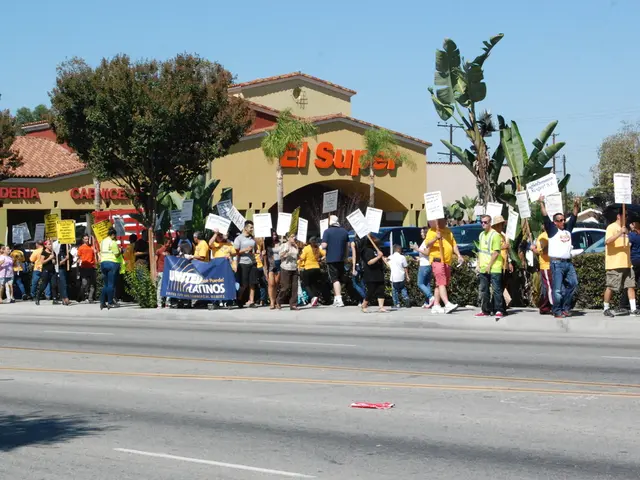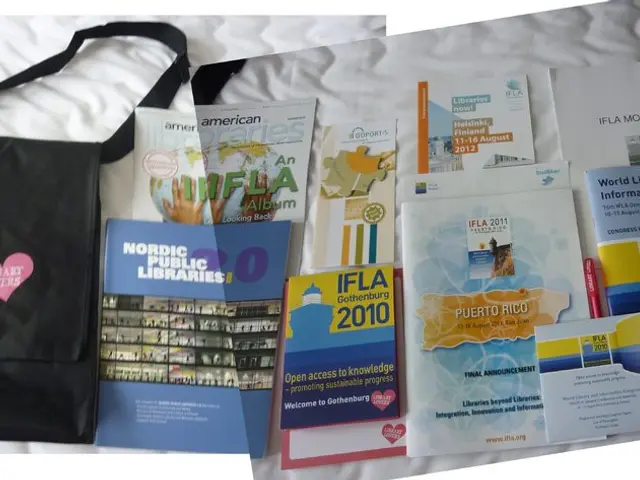Urban Cultivation in Dakar: Battling Food Scarcity and Climate Vulnerability
Micro-Gardening in Dakar's Concrete Jungle
Welcome to the heart of Senegal's capital, where concrete rules the landscape, water is scarce, and food scarcity looms large. But fear not, for the good people of Dakar have taken matters into their own hands with an ingenious solution: Micro-Gardening. Let's dive into the gritty details of this urban gardening revolution.
Ms. Ndeye Ndack Pouye Mbodj, the Project Coordinator, gives us a sneak peek into the world of Micro-Gardening in Dakar.
The Birth of Micro-Gardens in Dakar
The population explosion in Dakar since the 1970s has led to a series of challenges, including food insecurity. Our city's already compromised soil, thanks to climate change, combined with the recent urbanization, has skyrocketed food prices, threatening the food security of our city's vulnerable residents. Micro-gardening in Dakar emerged in 2004 as a fierce battle against poverty, hunger, and instability.
The project's tagline: "Feeding the vulnerable population healthily despite the lack of urban and peri-urban agricultural areas."
The project was a joint effort by the Food and Agricultural Organization of the United Nations (FAO), the city of Milan, and the Italian government, with the city of Dakar financially contributing to the initiative. So, what makes Micro-Gardening stand out from conventional gardening? Simply put, it's all about gardening in small spaces, like balconies, patios, and using containers ranging from crates and old car tires to plastic buckets.
Micro-gardening caters beautifully to urban dwellers, as it requires minimal space, produces crops organically, includes rainwater harvesting features, and most importantly, helps manage household waste. The best part? Micro-gardens are designed to thrive on recycled materials, including tables made of repurposed wooden pallets, containers, bottles, and even soil substrate crafted from recycled peanut shells and rice straws.
The ‘Green Lungs’ of Dakar
Since 2018, the project has expanded to cover the entire city, offering training in micro-gardening techniques and creating dedicated garden spaces within public areas such as schools. The FAO reports that the project has now grown to include training centers for micro-gardening techniques and secure water and production supplies throughout Dakar.
These Micro-Gardens have become the city's 'green lungs,' providing much-needed oxygen and reducing carbon emissions. They offer more than just food and greenery; they teach the younger generation about environmental conservation and sustainable development and promote inclusion by working with vulnerable groups.
"It's essential to involve the community during the design phase to understand their needs and rally their support."
The Micro-Gardening Success Story
The FAO recognizes the potential of the Micro-Gardening model to combat climate change and food insecurity, not just in Senegal but globally. The project's success can be attributed to the institutional support of the Mayor of Dakar and local authorities, as well as the involvement of all stakeholders in decisive action – a crucial factor, especially when addressing food security issues.
The project has achieved several significant milestones, including:
Boosting ‘Green Employment’
More than 10,000 residents have received training in micro-gardening, and over 134 production sites have been established. The beneficiaries have engaged in further related activities, such as vegetable processing. According to our project coordinator, "It's a genuine income generator."
Engaging Local Authorities
This has led to the establishment of 12 micro-gardening training centers within Dakar and the provision of secure production and water supplies.
Promoting Women and Youth Empowerment
A staggering 80% of beneficiaries are women, a crucial factor considering women are disproportionately affected by poverty. Micro-Gardening in Dakar is a beacon of hope for our city's future.
Looking Ahead
With Dakar's agriculture struggling under numerous climatic hazards, meeting the growing agricultural demand has become a challenge. Nonetheless, the city has integrated Micro-Gardening into its master plan, aiming to continue supporting the project through agricultural equipment and establishing a purchasing center. The future of Micro-Gardening in Dakar is bright, as long as financial backing remains a priority.
Connecting the Dots
Micro-Gardening in Dakar is more than just an urban gardening experiment; it's a powerful tool for enhancing food security, mitigating climate change, and fostering social inclusiveness in urban settings. As cities continue to grow, solutions like Micro-Gardening might just be the key to a greener, more sustainable future.
Ms. Ndeye Ndack Pouye Mbodj's project shows a correlation between science and environmental-science, as Micro-Gardening is a response to the challenges of climate-change and urbanization in Dakar.
The project's collaboration with the Food and Agricultural Organization (FAO) underlines the importance of education-and-self-development and learning in implementing sustainable living solutions like Micro-Gardening.
The focus on organically grown food and home-and-garden techniques demonstrates a passion for cooking healthy global-cuisines, while also encouraging lifelong-learning about sustainable practices.
Micro-gardens serve as a practical example of sustainable-living, as they help manage household waste, promote recycling, and provide a source of income through 'green employment'.
The expansion of the project to include training centers and school gardens indicates a commitment to creating a greener lifestyle for Dakar's residents, fostering environmental awareness in the younger generation.
Despite the challenges of food insecurity in Dakar, the Micro-Gardening project continues to thrive, demonstrating the potential for such solutions to positively impact food-and-drink security and play a role in the development of future cities.








